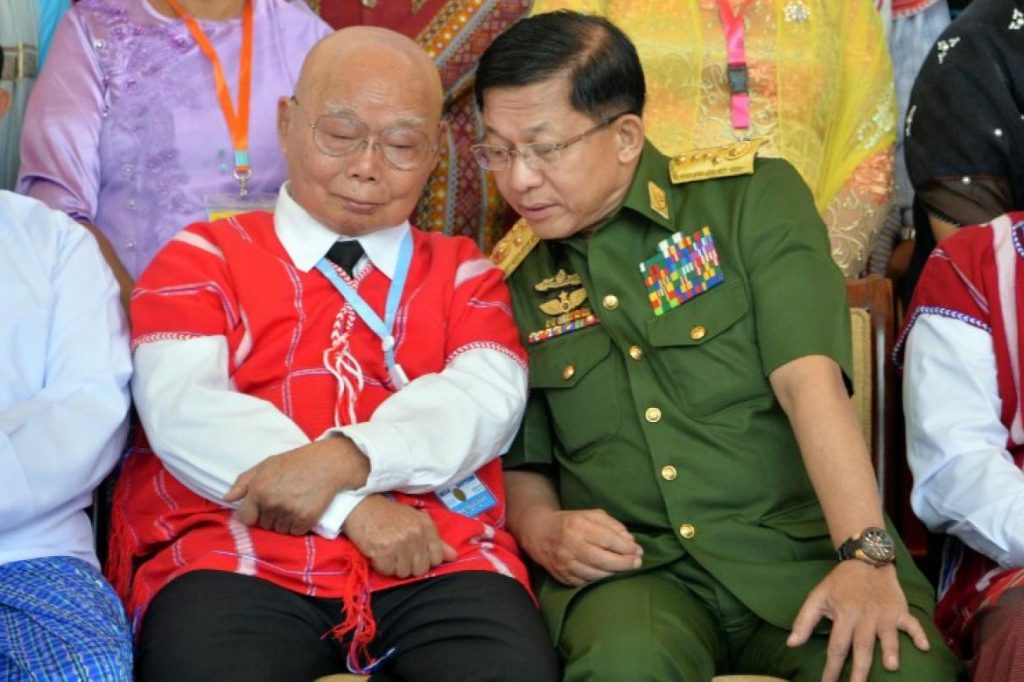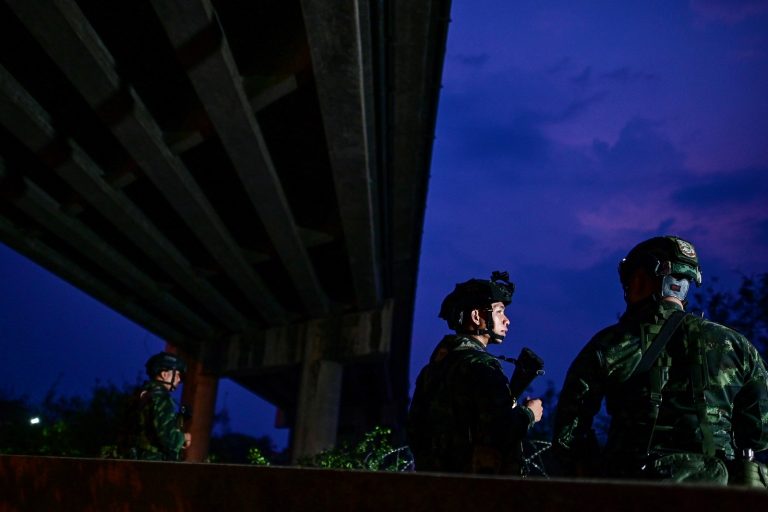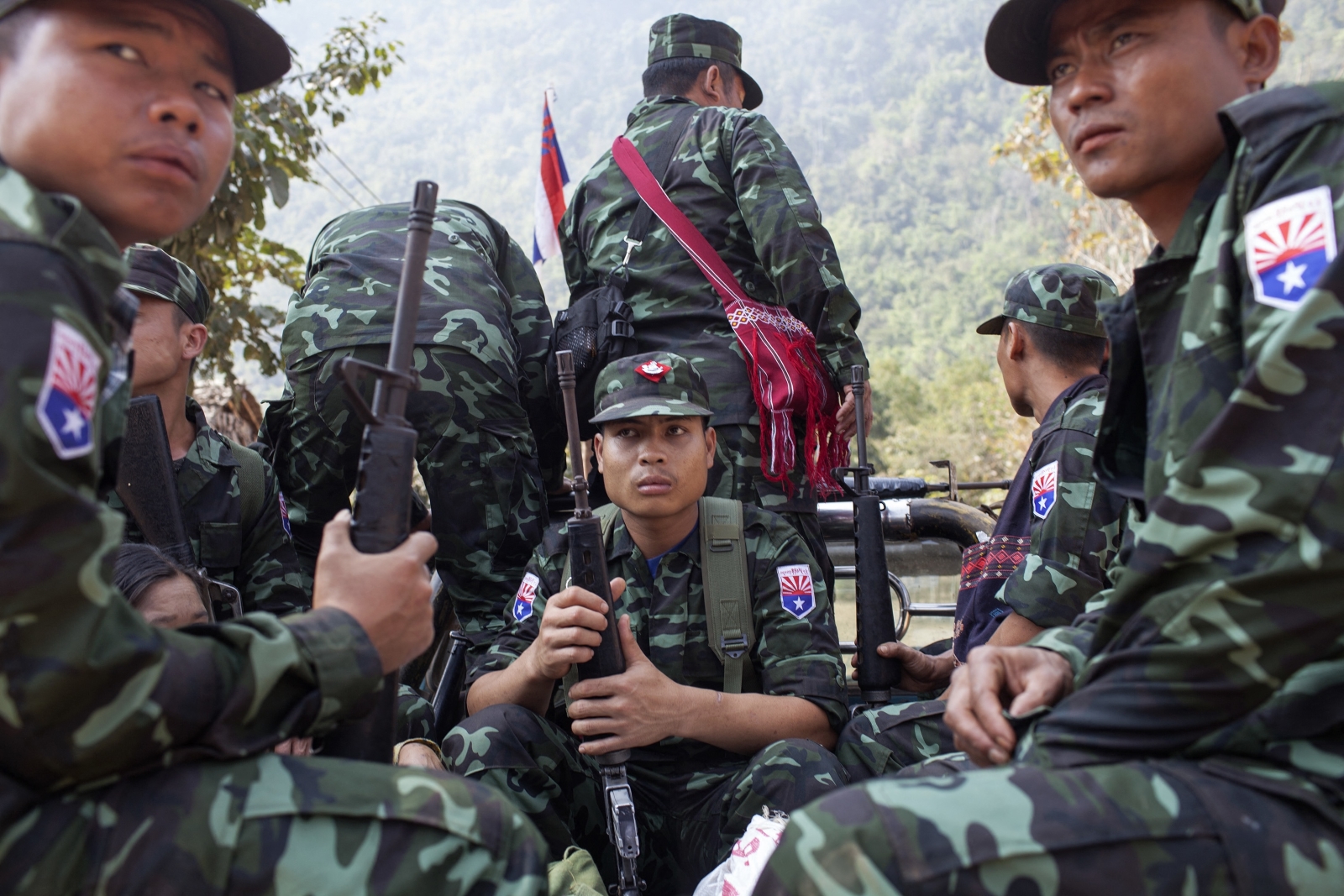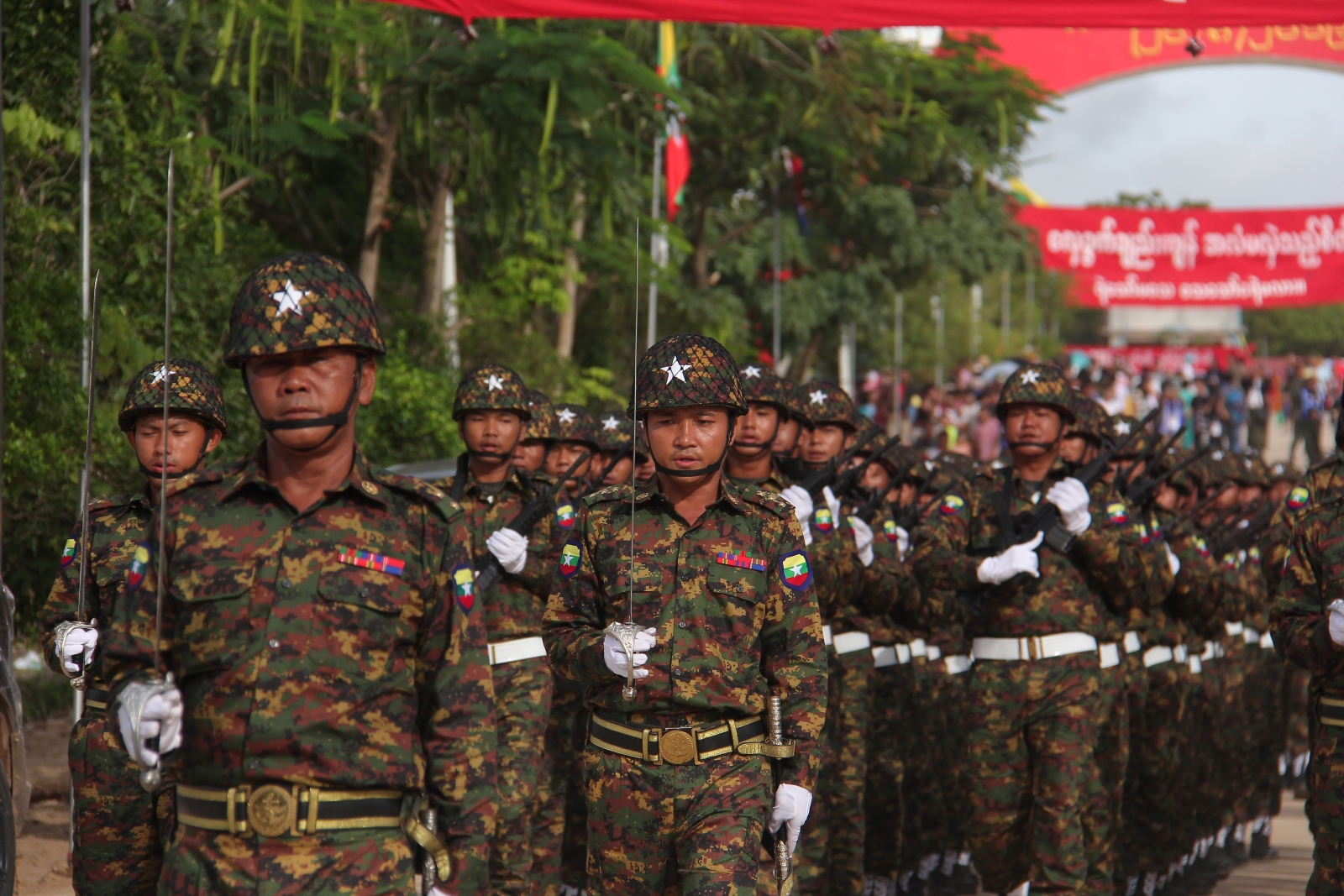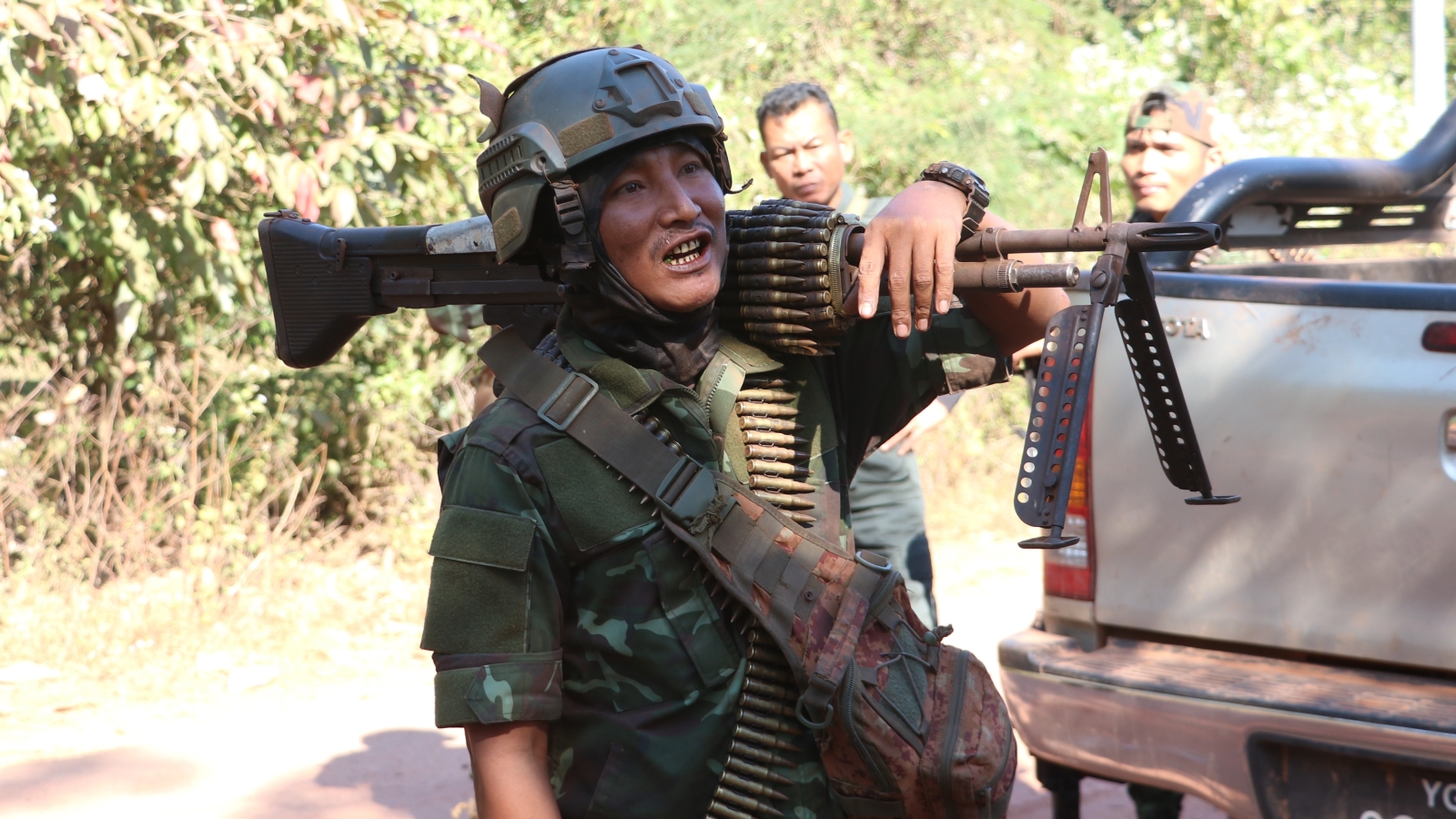By YE MON | FRONTIER
YANGON — The location of peace talks between military and civilian leaders and the leaders of ethnic armed groups party to the Nationwide Ceasefire Agreement, aimed at resolving deadlocks in the peace process, has been moved from Mount Popa to Nay Pyi Taw.
At the talks scheduled for October 15, to mark the three-year anniversary of the ceasefire agreement, Senior General Min Aung Hlaing, State Counsellor Daw Aung San Suu Kyi and leaders of the 10 ceasefire signatory groups will seek consensus on six points that have become stumbling blocks in the peace process, including administrative autonomy and the formation of a federal army.
The dialogue was to be held at Mount Popa, an extinct volcano near Bagan in Mandalay Region, but ceasefire signatories yesterday asked the government by telephone to change the location. They made the request following a two-day meeting between the 10 groups in Chiang Mai, northern Thailand, at which they all agreed to attend next week’s peace talks.
Speaking to Frontier on October 11, Padoh Saw Kwe Htoo Win, vice-chair of the Karen National Union, said the signatories initially proposed holding the summit in Yangon, because there is a direct flight to the city from Chiang Mai.
Support more independent journalism like this. Sign up to be a Frontier member.
“We proposed changing the location because our leaders would be tired if the summit was held in Popa and we also need more time to prepare,” he said. After some discussion, he said, the government agreed to compromise and hold the talks in Nay Pyi Taw.
This is the first time that Min Aung Hlaing and Aung San Suu Kyi will meet all 10 ceasefire signatories to discuss major hurdles in the ailing peace process.
Padoh Saw Kwe Htoo Win said the talks would focus on resolving differences over six key points: non-secession and self-administration for ethnic groups; the merits of top-down versus bottom-up decision making among stakeholders; the formation of a single federal army; the timeline and sequencing of the peace process; the inclusion of non-Nationwide Ceasefire Agreement signatories in the peace process; and a review of the framework for political dialogue.
The talks are scheduled to last between three and five days. Any agreements reached would be shared with the Union Peace Dialogue Joint Committee for inclusion in future political dialogue.
“We believe the summit will have a positive impact on the peace process,” Padoh Saw Kwe Htoo Win said.
Political analyst U Maung Maung Soe said he believed the military and government would accede to the requests of ethnic armed groups at the summit because of pressure exerted on it over “other issues” by the international community. “I think they have to make the peace process a success, but they should not forget non-signatory groups,” he said.


